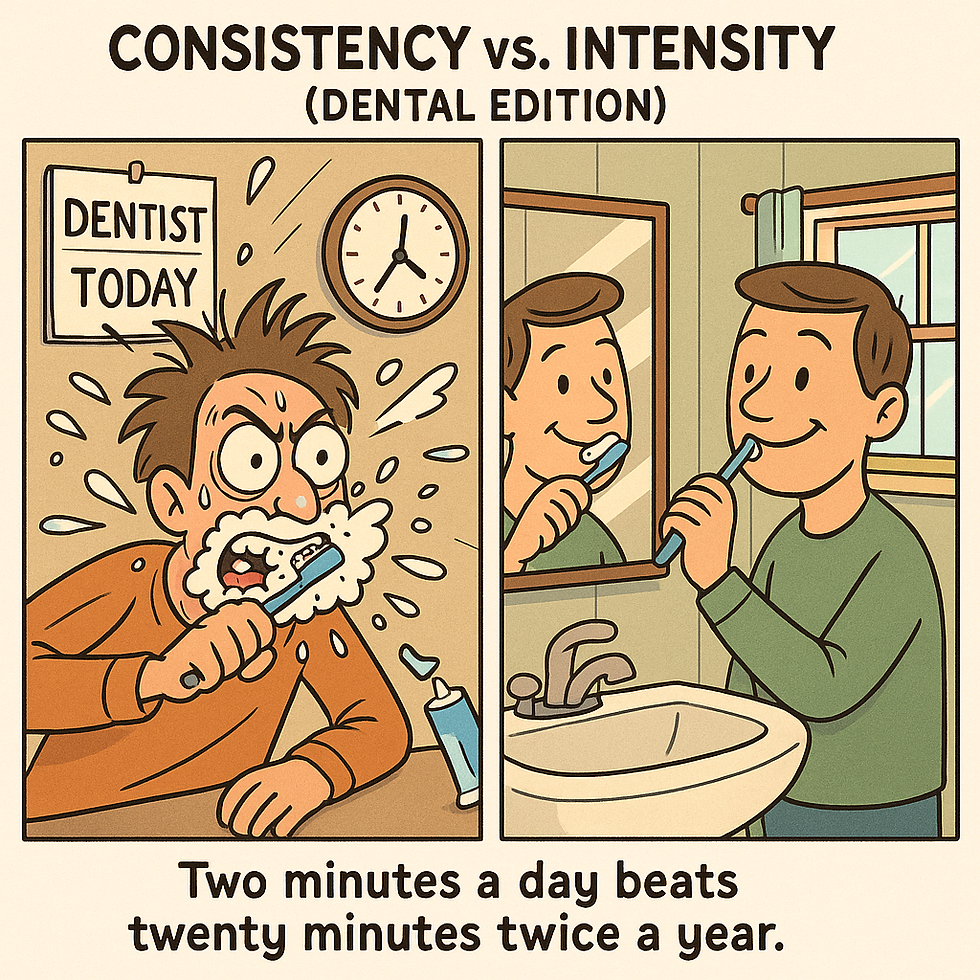Chaos Is The New Cocaine: Why We Crave The Crisis
- Jun 1, 2025
- 3 min read
Updated: Jun 26, 2025

Let’s talk about something most folks in construction project management don’t say out loud: we kind of love the chaos.
Now, I don’t mean we root for things to fall apart. But if you’ve ever felt that strange jolt of energy when a jobsite blows up - figuratively, of course - you know what I’m talking about. The emails are flying, phones are ringing, radios are buzzing, and everyone’s looking at you like you’re the one who’s going to fix this. And for some reason… you’re locked in. Hyper-focused. Adrenaline pumping. You’re alive. You feel important.
It’s a rush. And that’s the problem.
There’s a growing number of people in our field who, whether they know it or not, are chasing that feeling. Crisis becomes their fuel. They think they’re most effective when the world’s on fire - and they like it that way. It gives them purpose. Clarity. Camaraderie. Like a soldier itching to get back to the front line, even when peace is right in front of them.
But here’s the catch: that’s not where long-term success lives. And deep down, I think we know that.
Crisis Feels Good - for a Moment

I’ve been on projects where the team thrives in chaos. We’d pull off miracles at the last minute, solve massive problems under pressure, and high-five like we just landed on the moon. And honestly? It was exhilarating.
But it was also exhausting.

Once the dust settled, and we had a chance to catch our breath, the day-to-day felt... dull. Almost too quiet. Like, “Wait, this is it?” There's no dopamine hit from writing meeting minutes or reviewing submittals. No buzz from logging RFIs or updating the schedule. Nobody is calling for a SITREP.
And that’s where the danger lies. Because if you start to crave the chaos, I believe some people start to looking for chaos by blowing small issues out of proportion. Suddenly you're back in the pressure cooker - and loving it.
The Best Teams Don’t Need Chaos

Here’s the truth: the better the team, the less chaos there should be.
Think about that. The best crews I’ve worked with didn’t need to be in emergency mode to perform at a high level. They communicated early, planned thoroughly, documented consistently, and followed through like pros. Crisis wasn’t a badge of honor - it was a sign something went wrong. “Adventure is just bad planning”, said the master of adventure, Roald Amundsen.
Yes, emergencies will happen. That’s just construction. Weather shifts. Deliveries go sideways. Designs change mid-stream. But those don’t need to ignite chaos. Instead, they can be dealt with, like any other issue with sound SOPs, contingency plans, and experienced personnel.
A great PM doesn’t just respond to chaos - they design systems that reduce the need for it in the first place, and if an emergency does occur, processes for dealing with it.
Boring is Where the Wins Are

Here’s something I’ve come to believe: boring is beautiful.
The routine stuff - the things nobody posts about on LinkedIn - that’s where projects are won or lost. Robust Precon. Scope clarity. Change management. Stakeholder expectation management and alignment. Progress tracking. Risk mitigation. It’s not sexy. But it’s the foundation. And the folks who master that are the ones who build careers, not just war stories.
You don’t need chaos to feel valuable. You need consistency, clarity, and a team you can trust. And when you can deliver a smooth, predictable project? That’s real leadership.
I believe that good people can sense unnecessary chaos and simply choose to not live their life that way, so they leave.
Final Thought

So if you’ve been riding the high of constant crisis, I get it. I’ve been there. But maybe take a step back and ask yourself: Am I addicted to the chaos? Or am I building something that lasts?
It’s fun to be the firefighter. But it’s even more powerful to be the architect of calm.
Let’s aim for that.



Comments